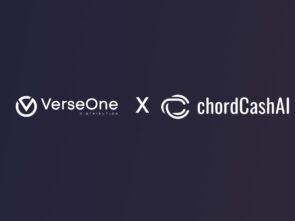An Update To Spotify’s Royalty Model

The music industry landscape is constantly changing, so it’s important to stay up-to-date and understand how your streaming royalties are calculated. Spotify has recently announced three major changes to its royalty payout model in Q1, 2024. The new model is designed to move $1 billion in royalty payments over the next five years to legitimate artists and rights holders.
One change that’s anticipated to reduce the number of tracks receiving royalties on Spotify is the implementation of a minimum annual stream threshold. Previously, tracks with low streams constituted 0.5% of the service’s royalty pool.
Spotify has announced that by Q1 2024, each track on its platform will have to reach a minimum number of annual streams before it starts generating royalties. While they have not specified the exact number of streams of this threshold, the move is expected to demonetize tracks that currently earn less than five cents per month.
Spotify’s decision to prioritize a small percentage of its platform’s tracks, which may have limited popularity and revenue generation, may seem counterintuitive. However, given the colossal number of tracks uploaded to streaming services daily, these tracks’ cumulative payout amounts to a considerable sum. Under the new plan, that money will go back into Spotify’s ‘Streamshare’ royalty pot and be redistributed amongst higher performing tracks.
In addition, Spotify has decided to impose financial penalties on music distributors, including labels, in the event fraudulent activity on tracks is detected and uploaded to Spotify. Whenever blatant artificial streaming is identified, a per-track enforcement penalty will be applied.
Spotify has one of the most advanced anti-fraud technologies among streaming platforms and has used it recently to remove tens of thousands of tracks from its service due to illegitimate and fraudulent methods of boosting stream counts. Spotify plans to deter such activity by fining distributors, including labels, for tracks that are detected as having been artificially streamed.
The monetary penalty will be enforced per track and is expected to discourage fraudsters and their enablers while increasing payouts for honest artists and rights holders.
Finally, Spotify is set to implement a new policy where ‘non-music noise tracks’ must meet a certain minimum length of play time to generate royalties.
Was it helpful?
Continue reading
-
Billboard Ad Placement Service Now Available on VerseOne
Greetings, artists and musicians! Aiming to make a bigger mark than ever before in the music industry with your brand? You’re in for a real treat because what VerseOne has in store for you is truly game-changing, a Billboard Ad Placement service tailored for artists. Envision your music displayed prominently on digital billboards at some […]
News -
VerseOne partners chordCashAI™ smart music funding technology.
VerseOne Distribution is trilled to announce its strategic agreement with ChordCash, a premier royalty advance platform, to assist and empower independent artists. This partnership offers artists $1,000 to $1 million in advances depending on contract duration, music catalog size, and new releases.
News


